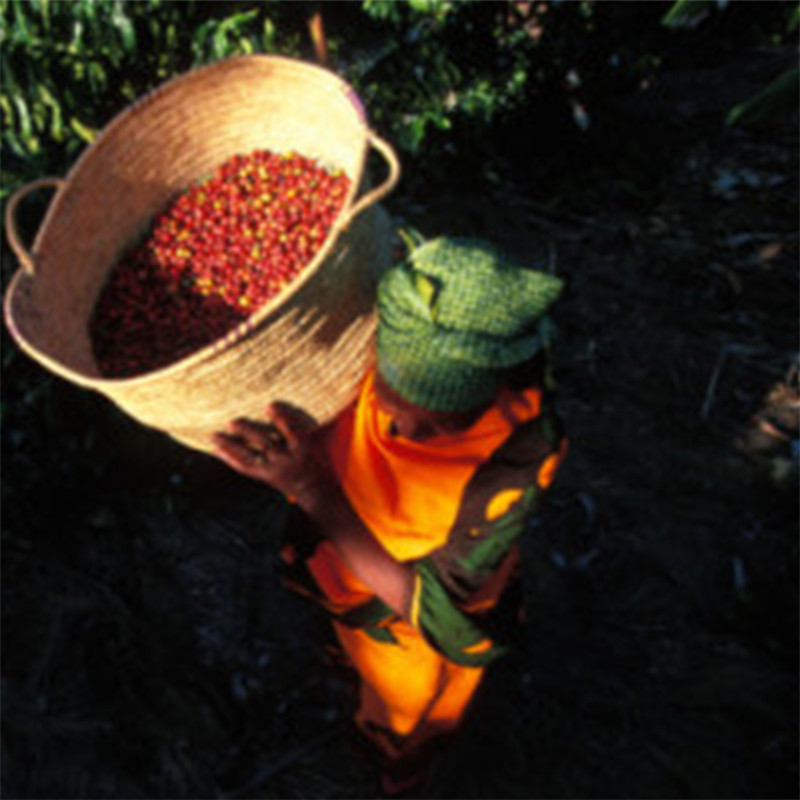I'll tell you the real reason why Africans don't like coffee.

One thing I am very curious about is that coffee comes from Africa, but in many parts of Africa, especially in small towns and villages, few people drink coffee. But after a trip to Uganda, the hometown of coffee, this question can basically be answered.
There are many coffee farms in the village of Budadiri in Mombali, a small town near the Kenyan border in Uganda. Among them, coffee farmer Jaja Kate owns hundreds of thousands of coffee trees. September to December is the coffee harvest season. I follow him to pick red coffee beans on the coffee farm. At first glance, these ripe coffee beans look like small cherries, the color is very attractive.
Jaja Kate is very talkative and happy to live. He takes the children to pick coffee beans and sing songs. The whole family, like relatives, revolves around these coffee trees every day and knows the growth of each tree like the back of their hand.
According to Jaja Kate, the conditions of well-cultivated coffee trees are very strict: sunshine, rainfall, soil, climate and so on will affect the quality of coffee. Sunshine is an essential element for the growth and fruiting of coffee trees, but strong sunlight will also affect the quality, so at this time, we need the surrounding banana trees, mango trees and other help to block the sun in order to achieve a natural balance of sunshine.
Coffee originated in Ethiopia in Africa, and then moved to Yemen in the Arab region of the Middle East, so some people call it "Arabik". Then it spread to Java, Indonesia, and from there to Latin America. African coffee was previously grown in Congo, Uganda and other places, for Robster coffee, and a kind of coffee grew in Liberia, for Liberia. In 1753, Swedish botanist Carl van Linnay divided coffee into three original species: Arabica coffee (about 70% of the world's coffee), Roberts coffee (used to account for 25% of the world's coffee), and Liberica coffee, which is now almost unknown.
At present, the coffee grown by Jaja Kate belongs to Arabica coffee, which is also an excellent coffee bean, of course, it is related to the soil and temperature in this area. As a result, he was very proud, but when asked if he drank coffee, he said that it was only occasionally and not a daily necessity.
"since you deal with coffee beans all the year round, why don't you like coffee?" I asked him.
"although coffee beans originated in Africa, drinking coffee is not a hobby inherited by our ancestors. We didn't have baking skills. At that time, at best, we mashed the dried coffee beans by hand and added some boiled water to drink. In fact, we like to chew sun-dried coffee beans best. Including in the national engagement and marriage ceremony, the woman's family is to send dried coffee beans to the man's family and connect the hearts of the two families with coffee fruits. This is our real traditional custom. "
Now I finally understand why coffee drinking is not as popular locally as in Europe and the United States. Of course, in addition to the more difficult baking technology, there is another very important reason. Local people make a living by selling coffee beans, so they are not willing to drink high-quality coffee beans themselves. Moreover, people can also appreciate the pleasure of chewing coffee beans without losing the aroma of caffeine.
Finally, I had a chance to participate in the engagement ceremony of the Buganda people. In the last item of the ceremony, the woman's parents really handed the dried coffee beans into the hands of the groom and his relatives. After that, everyone shared the joy of chewing coffee beans, which also indicates that the marriage can continue peacefully and beautifully.
The article comes from the Internet.
Important Notice :
前街咖啡 FrontStreet Coffee has moved to new addredd:
FrontStreet Coffee Address: 315,Donghua East Road,GuangZhou
Tel:020 38364473
- Prev

15 Health-preserving functions of Coffee from the Angle of traditional Chinese Medicine
Coffee is an imported product, when Western culture collides with traditional Chinese medicine culture, let's see how traditional Chinese medicine feels the pulse of coffee! The coffee bean is taken from the fruit of the coffee tree. It is red and red in color, enters the heart, is bitter, and merges into the path of the large intestine. The taste is bitter and bitter, fried and scorched. Glycol has the effect of nourishing and relieving pain, relieving pain, diverging pungent flavor, passing through the brain-blood barrier and treating surface wind.
- Next

Do you believe the nature of your character revealed by drinking coffee?
After studying the behaviors and habits of 1000 coffee lovers, British clinical psychologists found that black coffee lovers are often perfectionist, they like a simple life, but a little elusive; people who drink lattes like to please others; people who drink cappuccinos have a strong desire for control and performance; people who like instant coffee are relatively lazy and like procrastination; trendsetters like to be chilled.
Related
- Unexpected! Ruixing Telunsu lattes use a smoothie machine to foam milk?!
- % Arabia's first store in Henan opens into the village?! Netizen: Thought it was P's
- Does an authentic standard mocha coffee recipe use chocolate sauce or powder? Mocha Latte/Dirty Coffee/Salty Mocha Coffee Recipe Share!
- What is the difference between Vietnam egg coffee and Norway egg coffee? Hand-brewed single product coffee filter paper filter cloth filter flat solution!
- What is the difference between sun-cured and honey-treated coffee? What are the differences in the flavor characteristics of sun-honey coffee?
- How to make Italian latte! How much milk does a standard latte use/what should the ratio of coffee to milk be?
- How to make butter American/butter latte/butter Dirty coffee? Is hand-brewed coffee good with butter?
- Is Dirty the cold version of Australian White? What is the difference between dirty coffee/decent coffee and Australian white espresso?
- Relationship between brewing time and coffee extraction parameters How to make the brewing time fall to 2 minutes?
- Got entangled?! Lucky opens a new store, Mixue Ice City, and pursues it as a neighbor!

